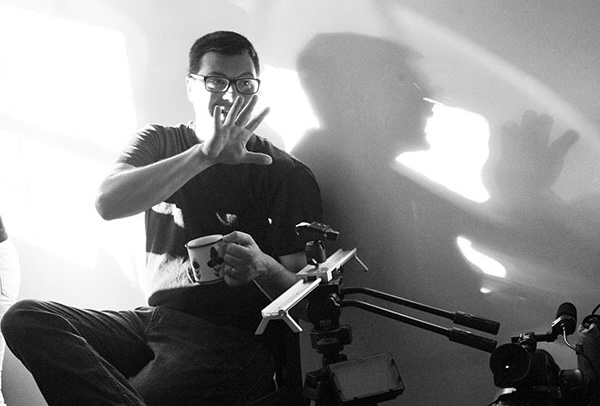

Gabino Iglesias’s House of Bone and Rain is a harrowing, atmospheric blend of supernatural horror and gritty crime fiction, set in the days surrounding Hurricane Maria’s devastation of Puerto Rico. The story follows five teenage boys—Gabe, Bimbo, Xavier, Tavo, and Paul—whose bond is tested and transformed when Bimbo’s mother is brutally murdered. In a striking early scene, Bimbo places a pistol on his mother’s body during her wake and invites the others to do the same, a symbolic blood oath that sets them on a path of vengeance.
Iglesias’s prose is unflinching and evocative, painting a Puerto Rico that is both physically battered and spiritually burdened. The oppressive heat, flood-ravaged streets, and culturally embedded mythos give the novel a strong, immersive sense of place. Readers are pulled not just into the boys’ emotional unraveling, but into the island itself—its ghosts, its traumas, and its unspoken histories. The violence is intense and ever-present, but never without purpose; each act echoes through the characters' lives and the landscape they inhabit. Ultimately, House of Bone and Rain is not just a horror novel—it’s a reckoning, a dirge, and a storm surge of sorrow and survival.
The novel melds crime-thriller intensity with supernatural dread, exploring how grief and loyalty can morph into something monstrous. Under the brutal storm, the story becomes a portrait of trauma and ethical descent.
Set in Puerto Rico on the brink of Hurricane Maria, the story follows a tight-knit group of teenage boys—Gabe, Bimbo, Xavier, Tavo, and Paul—as they launch a violent crusade to avenge the murder of Bimbo’s mother. Under the brutal storm, the novel melds crime-thriller intensity with supernatural dread, exploring how grief and loyalty can morph into something monstrous.
The setting is so richly drawn that readers unfamiliar with Puerto Rico will still feel its pulse beneath every line. Spanish phrases and folkloric references immerse the reader in a haunted, beautifully broken world.
There is a uniquely sinister blend of realism and the supernatural. Essentially, a hurricane becomes a vessel for evil spirits, and Iglesias weaves dynamic and hauntingly eerie folklore into a crime narrative without a hiccup.
The boys’ vigilante journey is both shocking and soulful, and lays bare the psychological cost of turning to violence. We're left with a portrait of trauma & ethical descent that is strongly yet gracefully woven into the work.
Fractured loyalty & coming-of-age themes give the book depth. The bond between the boys is central and makes their descent into darkness emotionally resonant.
There is a lot—and I mean a lot—of unflinching violence. I grew up on books that wove gore, brutality, and chaos into their narratives without apology, so I don’t just tolerate those elements in horror—I value them. I think current trends have dulled the shock factor I once cherished in the genre’s best publications. For readers like me, the bloodletting in this novel isn’t gratuitous; it’s deliberate, effective, and wholly earned.
There is a strong sense of place that hooks you immediately. Having spent long stretches in San Juan, mingling with locals and wandering past crumbling walls and sunbaked streets, I felt that familiar pulse beneath the empanadas and piña coladas—the history, the fears, the humanness that Iglesias captures with uncanny precision. The oppressive humidity, storm damage, and cultural references (Puerto Rican myths, Spanish dialogue) are especially immersive. The steady undercurrent of Puerto Rican folklore—layered with bursts of untranslated Spanish—pull you straight into the marrow of the setting.
House of Bone and Rain is a raw, evocative fusion of crime and supernatural horror that doesn’t pull punches. It’s the kind of book that crawls under your skin and stays there—part ghost story, part grief ritual, part blood-soaked reckoning. If you lean toward intense, atmospheric fiction with moral complexity and folkloric overtones, this is a gripping, unforgettable ride. The violence is relentless, yes—but it’s never hollow. Every shattered bone, every scream, carries weight. Iglesias writes with the fury of someone who’s seen the storm hit home and knows the monsters it stirs loose. Be prepared—it’s brutal, beautiful, and powerful. And if you’ve ever walked the streets of Puerto Rico long enough to feel its buried stories stir beneath your feet, you’ll recognize this novel as something honest. Something haunted. Something true.
I'll reiterate a bit, and I can't stress enough how evocative Iglesias's writing is. The scene early on really sets the tone quite well. At his mother’s funeral, Bimbo places a gun atop his mother’s chest and, eyes bloodshot and streaked with tears, invites his friends to do the same—binding them in a chilling oath to avenge her murder. That moment isn’t theatrics—it’s the fracture point where loyalty and grief collide.
From there, the book crawls under your skin and stays. It’s part ghost story, part blood-soaked reckoning. The violence is unflinching, but deeply earned—etched into character and setting. Iglesias writes like someone who’s seen real storms rage and real desperation, and who knows the monsters they drag behind them.
If you liked the brutality, loyalty, and supernatural edge...
If you liked the storm, setting, and social horror...
For readers into violent, supernatural crime fiction...
Jamie Bucuy is a psychological horror and thriller writer with a Master of Fine Arts in Creative Writing. With a passion for exploring the darker facets of human nature, Jamie brings a keen analytical eye to the genre. His reviews combine literary insight with a deep understanding of the craft, providing readers with thoughtful perspectives on modern and classic horror fiction.

Author of psychological thrillers and supernatural horror. Journey into stories where reality distorts, and the unknown takes hold.
 The Willows
The Willows
 We Have Always Lived in the Castle
We Have Always Lived in the Castle
 Misery
Misery
Stay updated with the latest news and releases from Jamie Bucuy